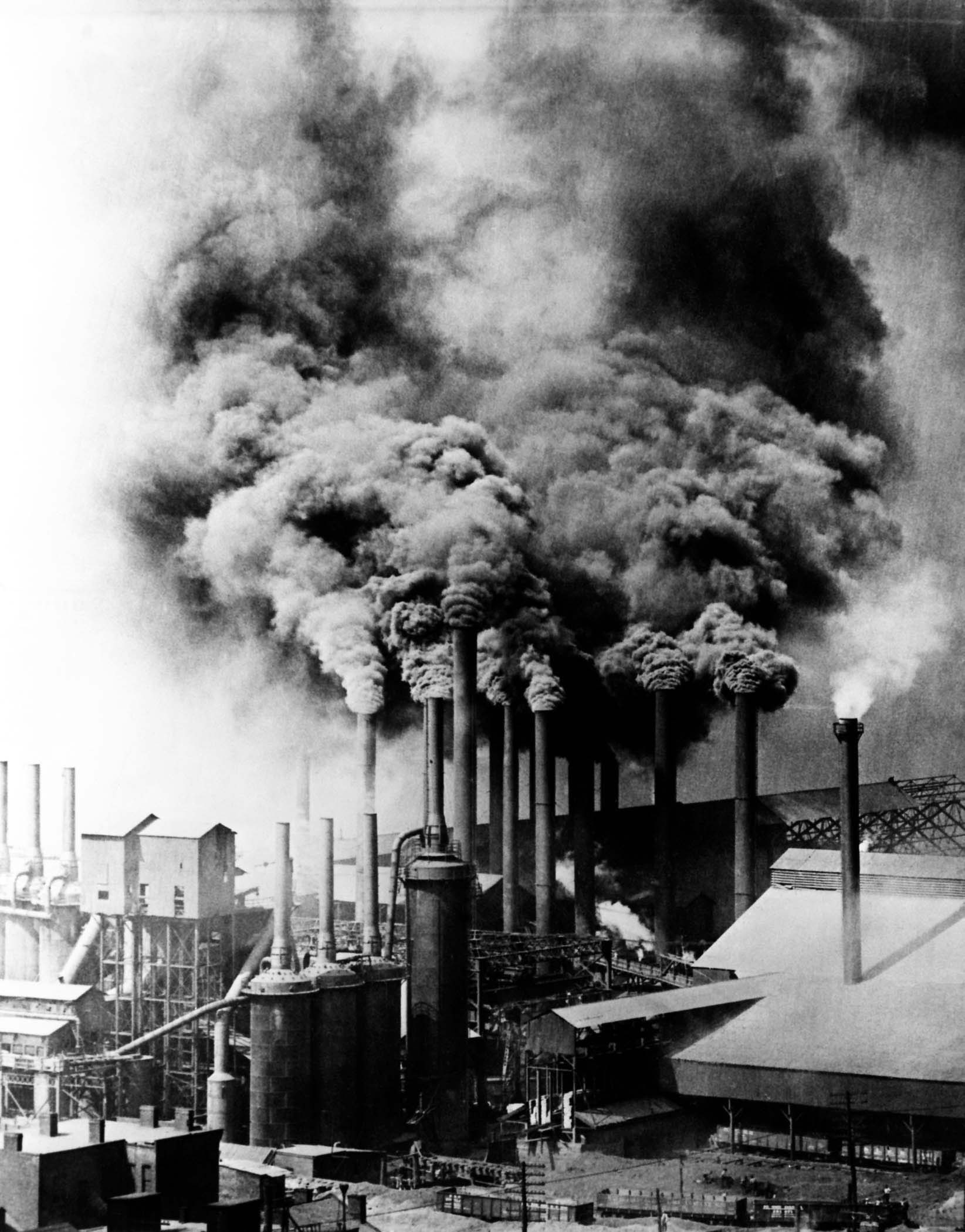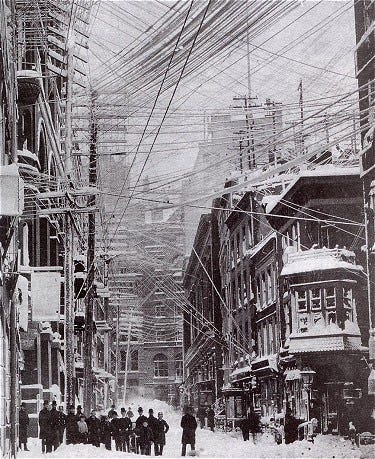Several years ago, a friend of mine presented a paper at a law school whose faculty is known for its conservative ideological bent. The paper described a regulatory agency’s analysis showing that the public health benefits of a particular regulation far exceeded its costs. (Those costs included the compliance costs regulated firms would incur under the rule.) Recounting the event to me afterwards, my friend was bemused at one of the first questions from the audience, which was “OK, but what about freedom?”
The 21st century pairing of partisan polarization with accelerating populism has increased the number of voters willing to see regulation as an unacceptable restriction on personal freedom. Internet information bubbles harden their views, and make it difficult to organize collective responses to pressing national problems.
It is especially frustrating to Democrats, because conservatives are politically savvy [read: inconsistent] about attaching this notion of freedom to different regulatory regimes. They don’t urge repeal of the popular Clean Air Act, or of its application to old air pollution problems. But they do oppose new legislation applying the same regulatory philosophy to greenhouse gas emissions — or most new pollution problems, for that matter.
The idea of government as the opponent of freedom was on display at this week’s Republican National Convention. This view seems to have taken hold as well at the Supreme Court, which has issued a series of decisions (i) weakening Congress’ power to delegate consequential regulatory decisions to the executive branch, (ii) removing regulatory agencies’ power to use administrative hearings to impose civil penalties on violators, and (iii) abolishing a 40-year tradition of deferring to agency interpretations of the statutes they are tasked with implementing. The Trump campaign’s plan to eliminate tens of thousands of civil service positions would weaken regulatory governance even further.
However attractive some may find it, this is an ahistorical view of government regulation, and it misattributes to Congress the desire to make all important regulatory decisions.* Worse, it weakens our democracy because a strong democracy depends on a strong, independent bureaucracy.** It is one of several reasons why U.S. economic and politicial power peaked during a post-WWII period in which the two major parties mostly agreed new environmental, health, safety and consumer protection measures, and on the wisdom of public investment in infrastructure (like the national highway system).
Indeed, most of the laws described in chapter 1 of Climate of Contempt represented congressional determinations to regulate — and to delegate many of the “how” questions to executive branch agencies — in order to protect public health and safety. The list of those statutes is extensive, and runs chronologically from the Pure Food and Drug Act of 1906 through the Clean Air Act, the Consumer Product Safety Act, the Occupational Safety and Health Act and various other late 20th century environmental, health and safety laws.
As described in chapter 2, a strain of conservative economic thinking began to challenge the effectiveness of regulation as a problem-solving tool in the late 20th century, with some even contending that all regulation is an ethically-indefensible restraint on individual freedom. The Republican Party’s embrace of MAGA populism seems to include a vague version of this “regulation is tyranny” idea, though they apply that charge selectively.
To be fair, this backlash against expertise and regulation sometimes brings together left- and right-populists, who each harbor suspicions of expert authority for different reasons. Robert Kennedy Jr. embodies this duality, as an environmental activist turned anti-vaccine activist who has sought the support of right populists in his presidential campaign. It shows up in other formerly left-niche protest movements like opposition to genetically modified foods, living off the grid, and the right to drink raw milk.
But American democracy explicitly aims to promote the general welfare in constitutionally-enumerated ways. In practice, policymakers balance public preferences and expert understanding of problems to decide when not to regulate (GMOs), when to regulate (mandatory milk pasteurization), and when to provide public services or push the market to do so (as in the case of grid-based electricity). Those collective choices came more easily before the onset of the misinformation age. Not coincidentally, the United States has fallen behind other nations in providing the public goods infrastructure that helps economic growth lift all boats.
Yet agency experts soldier on. Many of their regulatory policy decisions implicate public safety. Drinking raw milk, for example, is dangerous. Exposure to small pox, COVID, and other infectious diseases has killed millions. And climate change is already imposing massive costs and dislocation on a sizeable subset of U.S. citizens, a subset that will continue to grow over time absent limits on GHG emissions.
The notion that freedom includes the freedom to put others at risk — or that government restrictions on endangering others equals tyranny — is a childishly simple conception of freedom. It is unfortunate that more people seem to be embracing it.
Legal traditions throughout the modern world have always justified restricting individual choice when that choice endangers others. It is baked into both the common law and our constitutional philosophy. We often impose liability – civil and criminal – on those who put others at risk. And sometimes we use law to try to prevent injury by regulating risky activities. Sometimes regulators overstep, giving rise to accusations of a “nanny state.” But that is the exception, not the rule; which is partly why environmental, health and safety laws are popular.
More than that, freedom requires legal restrictions on individual choice. The social contract philosophers who influenced the drafters of the U.S. constitution conceived of the absence of government restrictions as a kind of state of nature in which no one is really free in any meaningful sense. In the state of nature the strong bully the weak. No investment or contract is safe, so few investments or contracts are made.***
We can argue about the wisdom of specific regulatory proposals, but platitudes about “government being antithetical to freedom” damage public understanding, even if they help win elections. The freedom to choose isn’t worth much in the absence of an opportunity to make meaningful choices – for everyone, not just well-armed warlords or the economically dominant. Nobel laureate economist Amartya Sen explores these ideas at length his book, Rationality and Freedom. And my colleague and legal historian Willie Forbath traces what he calls “the democracy of opportunity” tradition in U.S. constitutional history in his book (with Joey Fishkin), The Anti-Oligarchy Constitution.
As MAGA populists celebrate rolling coal, evading vaccine mandates, and other behaviors that put others at risk, the popularity of this “leave me alone” idea of freedom is surging within populist online communities and among “podcast bros.” That trend seems likely to erode support for the energy transition, because that transition will require national GHG emissions limits (read: regulation). Majorities of voters say they want those limits, but until they vote in ways that reflect that desire, national limits on GHG emissions seem unlikely. – David Spence
———-
*In West Virginia v. EPA the Court surmises that the “basic and consequential tradeoffs involved in [significant policy choices] are ones that Congress would likely have intended for itself.” This is plainly factually wrong. Congress delegates those choices in order to effectuate its desire to address parts of a problem it is incapable of addressing itself.
** When the European Union absorbed the former Warsaw Pact nations in the early 2000s, one of the criteria it used to assess the prospective members’ readiness for democracy was whether its executive branch was sufficiently independent of political influence. And of course, U.S. civil service laws were a response to the massive corruption and chaos within the executive branch that preceded those laws.
*** Chapter 3 (and Appendix C) of my book address in more detail the logical flaws in those strains of Austrian economics that attack regulation as an assault on individual freedom. Another line of attack comes from conservatives who intepret the work of political scientist Elinor Ostrom, Malthusian ecologist (and nativist) Garrett Hardin, or Ronald Coase as empirical evidence that society doesn’t need government to manage public goods. This is a questionable view of their work, at best. Ostrom’s empirical work on managing public goods and common pool resources, mostly in developing countries, illustrated that rules — including sanctions for violating those rules — are essential to their successful governance. And those subnational arrangements usually arose because the central government fails to provide them. That is why her most famous book is called “Governing the Commons.” Hardin’s 1968 article on the tragedy of the commons recommends regulation — “mutual coercion mutually agreed upon” — as the solution to the tragedy. And even Rondal Coase himself didn’t interpret his proof (that private dispute resolution of externality problems can be “efficient”) as an argument that regulation is unnecessary to solve pollution or other externality problems. All three understood that government regulation is essential to the management of externality problems.




